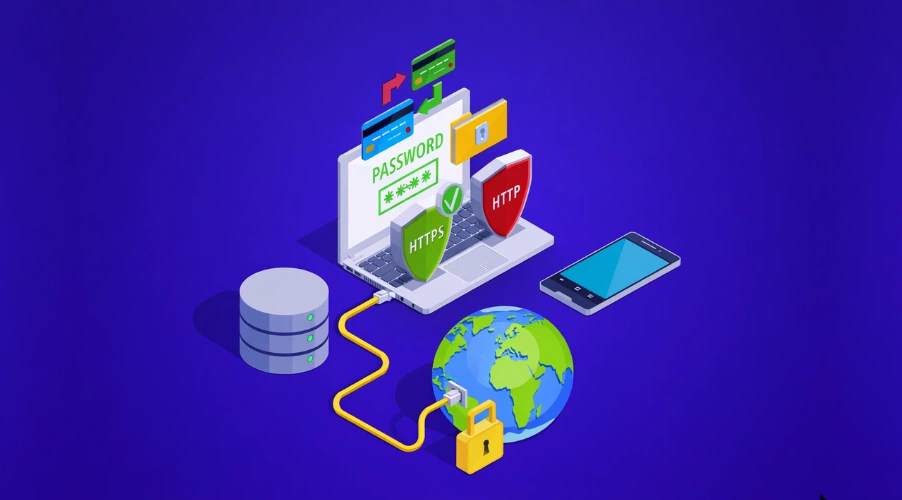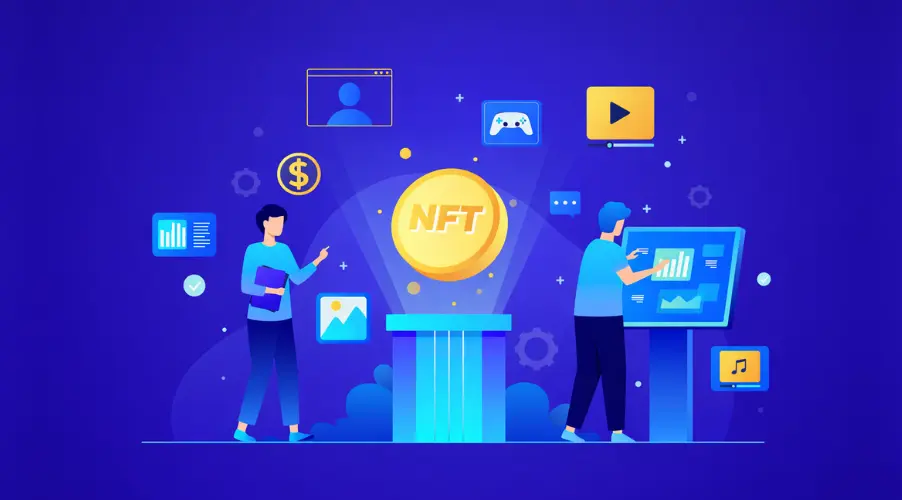Introduction to Self-Executing Contracts in Web3
The rise of blockchain has introduced a fundamental shift in how agreements are created, enforced, and settled. At the center of this transformation are self-executing contracts in Web3, programmable agreements that automatically carry out their terms the moment predefined conditions are met on a decentralized network. Unlike conventional agreements that depend on courts, banks, or notaries for enforcement, these blockchain smart contracts operate autonomously, removing intermediaries and delivering trustless execution at unprecedented speed.
With over eight years of experience building and consulting on decentralized solutions, our agency has witnessed the evolution of web3 applications from experimental prototypes to enterprise-grade platforms handling billions in value. Today, businesses across the USA, UK, UAE, and Canada are deploying self-executing smart contracts to automate workflows, reduce operational friction, and unlock entirely new business models. This guide explores the benefits, use cases, and industry impact of these automated smart contracts, providing actionable insights for organizations evaluating Web3 adoption strategies.
Why Self-Executing Contracts Matter in Web3?
The significance of self-executing contracts in Web3 extends far beyond simple automation. They represent a paradigm shift from trust-based to verification-based systems. In traditional commerce, every transaction requires a trusted intermediary to validate, process, and settle agreements. Banks mediate payments. Escrow agents hold funds. Legal systems enforce terms. Each intermediary adds cost, delay, and a potential point of failure. Web3 smart contracts eliminate these dependencies by encoding terms directly into blockchain code that executes without permission from any central authority.
For enterprises operating across the USA and UK, this means faster cross-border settlements. For fintech startups in the UAE and Canada, it opens the door to permissionless systems where innovation is not gated by institutional approvals. The global smart contract market continues expanding as organizations recognize that blockchain automation is not just a cost-saving measure but a competitive necessity. Decentralized smart contracts create environments where business logic is transparent, outcomes are deterministic, and trust is mathematical rather than institutional.
How Self-Executing Contracts Function in Web3 Systems?
Understanding the operational mechanics of automated smart contracts requires examining three core phases of their lifecycle.
Phase 1: Creation and Deployment
- Contract logic is written in Solidity, Rust, or Vyper based on the target blockchain
- Code undergoes security audits and formal verification before deployment
- Deployment transaction stores immutable bytecode on the blockchain network
Phase 2: Trigger and Execution
- External transactions or oracle data feeds trigger contract functions
- Blockchain nodes validate conditions and execute logic through consensus
- State changes are recorded permanently across the distributed ledger
Phase 3: Settlement and Finality
- Assets transfer automatically upon condition fulfillment without intermediaries
- Transaction finality ensures outcomes cannot be reversed or tampered with
- Events emit on-chain data that external systems and dApps can monitor
This three-phase lifecycle illustrates how on-chain execution replaces the multi-step, multi-party workflows found in traditional systems. When a condition is met, for example a payment deadline or a price threshold, the contract reacts instantly. No approvals, no processing queues, no business hours. For organizations in the USA and Canada handling high-volume transactions, this automation translates directly into operational savings and competitive advantages that compound over time.
Traditional Contracts vs Web3 Self-Executing Contracts
Understanding the contrast between conventional agreements and Web3 smart contracts reveals why businesses are transitioning to decentralized models. Traditional contracts rely on legal language, manual enforcement, and institutional trust. Self-executing contracts in Web3 replace these dependencies with code, cryptography, and consensus. The table below highlights the fundamental differences that drive this shift.
| Dimension | Traditional Contracts | Web3 Self-Executing Contracts |
|---|---|---|
| Enforcement | Legal systems, courts, arbitration | Automated by blockchain code |
| Trust Model | Institutional trust required | Trustless; code-based verification |
| Execution Speed | Days to weeks (manual processing) | Seconds to minutes (on-chain) |
| Transparency | Limited; private documents | Full; publicly verifiable on-chain |
| Modification | Renegotiation possible | Immutable once deployed |
| Cost | Legal fees, broker commissions | Gas fees (transaction-based) |
This comparison underscores a critical reality: traditional contracts excel in situations requiring legal nuance and human judgment, while blockchain smart contracts are superior for repeatable, high-volume, and trust-sensitive processes. Most forward-thinking enterprises in the UK and UAE are adopting hybrid models that leverage the strengths of both approaches, using self-executing smart contracts for operational logic and traditional agreements for complex legal frameworks.
Role of Smart Contracts in Web3 Architecture
Smart contracts serve as the foundational logic layer in Web3 architecture. While traditional web applications rely on centralized backend servers to process business logic, decentralized applications (dApps) delegate this responsibility to smart contracts running on blockchain networks. Every interaction, from token swaps to governance votes, is processed through these on-chain programs. They act as the backend of Web3, managing state, enforcing rules, and facilitating interactions between users without a centralized authority controlling the outcome.
In practice, a typical dApp architecture consists of a frontend interface (React, Vue, or similar), a wallet connection layer (MetaMask, WalletConnect), and smart contracts deployed on chains like Ethereum, Polygon, or Solana. Data indexing services such as The Graph make on-chain data queryable, while oracles like Chainlink feed real-world data into contracts. This architecture has become the standard for blockchain-based businesses across the USA, Canada, UK, and UAE. Understanding this stack is essential for any organization evaluating how Web3 smart contracts fit into their technology roadmap.
These metrics reflect findings from real-world blockchain implementations. The benefits of self-executing contracts in Web3 are particularly impactful for financial services, supply chain operations, and cross-border commerce. Enterprises in the UAE’s DIFC and Abu Dhabi Global Market, as well as fintech firms in the UK’s FCA sandbox, are already realizing these gains through strategic deployment of automated smart contracts within their operational workflows.
Trustless and Automated Execution in Web3
Trustless execution is the cornerstone principle that separates Web3 from Web2. In centralized systems, users place trust in organizations to act honestly, protect data, and honor agreements. History has shown repeatedly that this trust can be misplaced. Data breaches, financial fraud, and unilateral policy changes by platform operators have eroded confidence in centralized models. Decentralized smart contracts address this by removing the need for trust entirely. The code is the agreement, and the blockchain is the enforcer.
When a self-executing contract processes a transaction, every node on the network independently verifies the outcome. No single party can alter results, reverse transactions, or deny service. This creates a foundation for permissionless systems where anyone can participate without gatekeepers. For regulated industries in the USA and UK, trustless smart contracts provide a mechanism to demonstrate compliance through transparent, auditable on-chain records. In the UAE, where the government has actively promoted blockchain adoption, this trust model aligns with the vision of building a digitally transparent economy.
DeFi Applications Using Self-Executing Contracts
Automated Market Makers (AMMs)
Platforms like Uniswap and SushiSwap use self-executing contracts to create liquidity pools that enable decentralized token swaps without order books or centralized matching engines.
Lending and Borrowing Protocols
Aave and Compound use blockchain smart contracts to automate collateral management, interest calculations, and liquidations across permissionless lending markets.
Yield Aggregators
Yearn Finance deploys automated smart contracts that optimize yield farming strategies by reallocating funds across protocols to maximize returns for depositors.
Decentralized Insurance
Nexus Mutual and Etherisc use on-chain execution to process insurance claims automatically when oracle-verified events trigger payout conditions.
DeFi represents the most mature use case for self-executing contracts in Web3. The total value locked in DeFi protocols reached tens of billions of dollars, demonstrating real-world demand for blockchain automation in financial services. Institutions in the USA and UK are exploring regulated DeFi frameworks, while the UAE’s Virtual Assets Regulatory Authority (VARA) has created specific guidelines for decentralized finance operations, signaling growing institutional confidence in automated smart contracts.
NFT Ecosystems Powered by Web3 Smart Contracts
Non-fungible tokens owe their entire existence to self-executing smart contracts. Every NFT is minted, transferred, and traded through blockchain smart contracts that define ownership rules, metadata links, and royalty structures. The ERC-721 and ERC-1155 standards on Ethereum established the foundation, but newer standards across Solana (Metaplex), Polygon, and other chains have expanded what is possible. When an artist creates an NFT, the smart contract permanently records the creator’s address and can automatically distribute royalties on every secondary sale.
This automated royalty mechanism is revolutionary for creators. Traditional art markets offer no mechanism for artists to earn from resales. Web3 smart contracts solve this by encoding perpetual royalty logic directly into the token contract. Marketplaces in the USA, UK, and Canada have embraced this model, and UAE-based platforms are integrating NFTs into real estate, luxury goods, and cultural heritage preservation. The programmability of these decentralized smart contracts enables business models that simply could not exist in centralized systems.
DAO Governance Enabled by Self-Executing Contracts
Decentralized Autonomous Organizations represent one of the most ambitious applications of self-executing contracts in Web3. DAOs use automated smart contracts to manage governance processes, treasury allocation, and protocol upgrades without centralized leadership. Token holders propose changes, vote on decisions, and the smart contract automatically executes the outcome once a quorum is reached. This creates truly permissionless systems where community consensus drives organizational direction.
Real-world examples demonstrate the power of this model. MakerDAO governs the DAI stablecoin through on-chain voting. Uniswap governance controls protocol parameters through community proposals. Compound’s governance module has processed hundreds of proposals affecting billions in assets. For organizations in the USA and Canada exploring decentralized governance structures, DAOs offer a template for transparent, community-driven decision-making. The UK’s Law Commission has even published research on the legal status of DAOs, indicating growing institutional recognition of this governance model.[1]
Impact on Web3 Security and Transparency
Security and transparency are two sides of the same coin in the Web3 ecosystem. Self-executing contracts in Web3 deliver unprecedented transparency because every transaction, state change, and function call is permanently recorded on a public blockchain. Anyone can audit the contract’s code, verify its behavior, and trace the flow of funds. This level of openness is transformative for industries plagued by opacity, including financial services, supply chain management, and public procurement.
However, this transparency comes with security considerations. Smart contract vulnerabilities have resulted in significant losses across the industry. The reentrancy attacks, flash loan exploits, and oracle manipulation incidents highlight that code-based trust requires rigorous validation. Organizations must invest in multiple independent audits, formal verification, bug bounty programs, and monitoring solutions before deploying any trustless smart contracts to production. In the USA and UK, regulatory bodies are increasingly requiring proof of security audits for blockchain-based financial products, reinforcing that Web3 security is not optional but foundational.
Scalability and Performance Challenges in Web3
Scalability remains the most significant technical barrier facing self-executing smart contracts. Every transaction processed by a blockchain smart contract must be validated by the network’s consensus mechanism, which inherently limits throughput compared to centralized systems. During periods of high demand, gas fees spike and confirmation times increase, directly impacting user experience and operational costs. This challenge is particularly relevant for enterprises requiring high-volume transaction processing in markets like the USA and Canada.
| Network / Solution | TPS Capability | Avg. Transaction Cost | Finality Time |
|---|---|---|---|
| Ethereum L1 | ~15-30 | $1-$50+ (variable) | ~12-15 seconds |
| Polygon PoS | ~7,000 | $0.001-$0.01 | ~2 seconds |
| Arbitrum (L2) | ~40,000 | $0.01-$0.10 | ~250ms (soft) |
| Solana | ~4,000 | $0.00025 | ~400ms |
| Centralized Systems | 100,000+ | Operational (fixed) | Milliseconds |
Layer 2 solutions like Arbitrum, Optimism, and zkSync are dramatically improving throughput while maintaining Ethereum’s security guarantees. For businesses in the UK and UAE evaluating blockchain automation, choosing the right chain and scaling solution is a strategic decision that directly impacts user experience, cost structure, and long-term viability of their Web3 smart contracts.
Regulatory Considerations for Web3 Contracts
USA: States like Arizona and Wyoming have enacted legislation recognizing smart contracts. SEC oversight applies when contracts involve securities or financial instruments. AML/KYC requirements extend to DeFi protocols.
United Kingdom: The UK Law Commission has classified smart contracts under existing contract law. FCA sandbox enables testing of blockchain-based financial products. MiCA-adjacent frameworks are being evaluated post-Brexit.
UAE: VARA in Dubai and ADGM in Abu Dhabi provide comprehensive virtual asset regulations. The DIFC has established a specific legal framework for blockchain-based agreements and digital assets.
Canada: CSA has issued guidance on crypto-asset trading platforms. Ontario Securities Commission actively monitors DeFi protocols. Provincial laws vary on smart contract enforceability.
Cross-Border Challenges: Jurisdiction conflicts arise when self-executing contracts operate across borders. Choice of law, dispute resolution, and enforcement mechanisms require careful legal architecture in multi-market deployments.
Consumer Protection: Immutable contracts raise concerns about consumer rights, error correction, and dispute resolution. Emerging frameworks balance blockchain finality with consumer protection requirements.
Navigating the regulatory landscape for self-executing contracts in Web3 requires specialized legal expertise and proactive compliance planning. Organizations must work with legal advisors who understand both blockchain technology and the evolving regulatory frameworks in their target markets. The cost of regulatory non-compliance far exceeds the investment in proper legal architecture, making this a critical priority for any serious Web3 initiative.
Smart Contract Platform Selection: 3-Step Framework
Step 1: Define Use Case Requirements
- Determine transaction volume and speed requirements for your application
- Identify whether EVM compatibility is essential for your smart contract logic
- Evaluate composability needs with existing DeFi or NFT protocols
Step 2: Assess Ecosystem and Tooling
- Review available auditing firms, testing frameworks, and debugging tools
- Evaluate oracle availability and data feed reliability on the target chain
- Check community size, documentation quality, and available talent pools
Step 3: Validate Compliance and Risk
- Confirm regulatory acceptance of the chosen blockchain in your target markets
- Assess network uptime history, security incident records, and chain stability
- Plan for upgrade paths, migration strategies, and cross-chain interoperability
Web3 Smart Contract Compliance and Governance Checklist
☑ Pre-Deployment Audit: Commission at minimum two independent security audits. Verify coverage of reentrancy, overflow, access control, and oracle manipulation attack vectors.
☑ Upgrade Mechanism: Implement transparent proxy patterns or governance-controlled upgrade paths. Document all upgrade procedures and time-lock delays for critical changes.
☑ Access Control: Define role-based permissions for admin functions. Use multi-signature wallets for treasury and critical parameter changes. Never use single owner keys.
☑ Emergency Response: Implement circuit breaker patterns and pause mechanisms. Establish clear communication protocols for security incidents and fund recovery procedures.
☑ Regulatory Mapping: Map compliance requirements for every target jurisdiction (USA, UK, UAE, Canada). Consult blockchain-specialized legal counsel before launch.
☑ Monitoring and Alerting: Deploy real-time on-chain monitoring for unusual activity. Set up alerts for large transactions, governance proposals, and contract interactions.
Future Scope of Self-Executing Contracts in Web3
The trajectory of self-executing contracts in Web3 points toward deeper integration with emerging technologies and broader enterprise adoption. Artificial intelligence is being combined with smart contracts to create adaptive protocols that can adjust parameters based on market conditions. Cross-chain interoperability standards like LayerZero and Wormhole are enabling contracts on different blockchains to communicate and execute actions across networks, breaking down the silos that currently fragment the ecosystem.
Account abstraction is making Web3 smart contracts more accessible by simplifying wallet interactions and enabling gasless transactions for end users. Zero-knowledge proofs are adding privacy layers to on-chain execution, enabling confidential business logic on public blockchains. For enterprises in the USA and UK evaluating long-term technology strategies, these advancements signal that blockchain automation will become increasingly practical and cost-effective. The UAE’s national blockchain strategy and Canada’s progressive regulatory approach further reinforce that self-executing smart contracts are transitioning from experimental technology to enterprise infrastructure.
Looking ahead, the convergence of decentralized smart contracts with IoT devices, supply chain sensors, and real-world asset tokenization will unlock use cases that are barely imaginable today. Permissionless systems will power everything from automated insurance payouts triggered by weather data to supply chain payments released upon delivery confirmation. The organizations that invest in understanding and building with these technologies now will be best positioned to capture the opportunities of the next decade.
Conclusion
Self-executing contracts in Web3 represent a foundational shift in how agreements are created, enforced, and settled across digital and physical economies. By replacing intermediaries with code, these automated smart contracts deliver trustless execution, radical transparency, and programmable business logic that traditional systems cannot match. From DeFi protocols managing billions in assets to NFT marketplaces enabling creator economies and DAOs reimagining organizational governance, the impact of blockchain smart contracts is already measurable and growing.
However, adopting Web3 smart contracts is not without challenges. Security vulnerabilities, scalability constraints, regulatory complexity, and user experience barriers require careful navigation. Organizations in the USA, UK, UAE, and Canada must approach this technology with both enthusiasm and rigor, investing in audits, compliance, and progressive architectures that balance innovation with risk management. The future belongs to those who can harness the power of decentralized smart contracts while respecting the practical realities of building products that real people use every day. With the right strategy and execution, self-executing contracts will become a cornerstone of the global digital economy.
Launch Your Web3 Smart Contract Project with Confidence
Our 8+ year track record in blockchain architecture ensures your self-executing contracts are secure, compliant, and built for scale.
Frequently Asked Questions
Self-executing contracts in Web3 are blockchain-based programs that automatically enforce and carry out predefined terms when specific conditions are met. Unlike traditional legal agreements that require intermediaries such as lawyers or banks, these automated smart contracts run on decentralized networks like Ethereum, Solana, or Polygon. They use on-chain execution to verify conditions and trigger actions without human involvement. Businesses across the USA, UK, UAE, and Canada are increasingly adopting self-executing smart contracts to streamline operations, reduce costs, and eliminate counterparty risk in industries ranging from finance to supply chain management.
Self-executing smart contracts operate through code deployed on a blockchain network. When a user or another contract triggers a function, the blockchain nodes validate the transaction and execute the logic embedded in the contract. If predefined conditions are satisfied, the contract automatically performs the specified action, such as transferring tokens, updating records, or initiating payments. This trustless execution removes the need for centralized authorities. The entire process is transparent, verifiable by anyone on the network, and irreversible once confirmed, ensuring accountability across permissionless systems.
The key benefits include automation of complex workflows, reduced reliance on intermediaries, lower operational costs, and enhanced transparency. Self-executing contracts in Web3 eliminate manual processing delays and reduce human error. They provide trustless execution, meaning parties do not need to trust each other because the code enforces the agreement. For enterprises in the USA, UK, and UAE, these blockchain smart contracts offer improved audit trails, real-time settlement, and programmable compliance checks that simplify regulatory reporting and cross-border transactions significantly.
The legal enforceability of Web3 smart contracts varies by jurisdiction. Some regions, including parts of the USA (Arizona, Tennessee) and the UAE (DIFC framework), have enacted legislation recognizing blockchain-based agreements. In the UK and Canada, courts generally evaluate smart contracts under existing contract law principles, focusing on offer, acceptance, and consideration. However, challenges remain around dispute resolution, code interpretation, and consumer protection. Businesses should work with legal experts familiar with blockchain regulations to ensure their self-executing contracts meet local compliance requirements.
Self-executing contracts power multiple industries within the Web3 ecosystem. Decentralized finance (DeFi) uses them for lending, borrowing, and automated market making. NFT platforms rely on them for minting, royalty distribution, and marketplace operations. Supply chain management uses blockchain smart contracts for provenance tracking and automated payments. Insurance, real estate, healthcare, and gaming sectors are also adopting these contracts. In the UAE and Canada, government-backed blockchain initiatives are accelerating enterprise use of decentralized smart contracts across public services.
While the terms are often used interchangeably, a self-executing contract specifically emphasizes the automatic enforcement aspect. All self-executing contracts are smart contracts, but not all smart contracts are designed for autonomous execution. Some smart contracts require external triggers or oracle inputs to function. Self-executing smart contracts are programmed to activate independently when on-chain conditions are met, offering complete Web3 automation without manual intervention. This distinction matters when architecting decentralized applications that need fully autonomous, trustless operation across blockchain networks.
The primary risks include smart contract vulnerabilities, code bugs, and irreversible transactions. Once deployed on the blockchain, flawed logic cannot be easily corrected without complex migration procedures. Oracle manipulation can feed incorrect data to contracts, triggering unintended outcomes. Regulatory uncertainty in some jurisdictions creates compliance risks. Gas fee volatility on networks like Ethereum can make execution costs unpredictable. Businesses in the USA, UK, UAE, and Canada should invest in thorough auditing, formal verification, and legal review before deploying self-executing contracts to production environments.
Reviewed & Edited By

Aman Vaths
Founder of Nadcab Labs
Aman Vaths is the Founder & CTO of Nadcab Labs, a global digital engineering company delivering enterprise-grade solutions across AI, Web3, Blockchain, Big Data, Cloud, Cybersecurity, and Modern Application Development. With deep technical leadership and product innovation experience, Aman has positioned Nadcab Labs as one of the most advanced engineering companies driving the next era of intelligent, secure, and scalable software systems. Under his leadership, Nadcab Labs has built 2,000+ global projects across sectors including fintech, banking, healthcare, real estate, logistics, gaming, manufacturing, and next-generation DePIN networks. Aman’s strength lies in architecting high-performance systems, end-to-end platform engineering, and designing enterprise solutions that operate at global scale.







